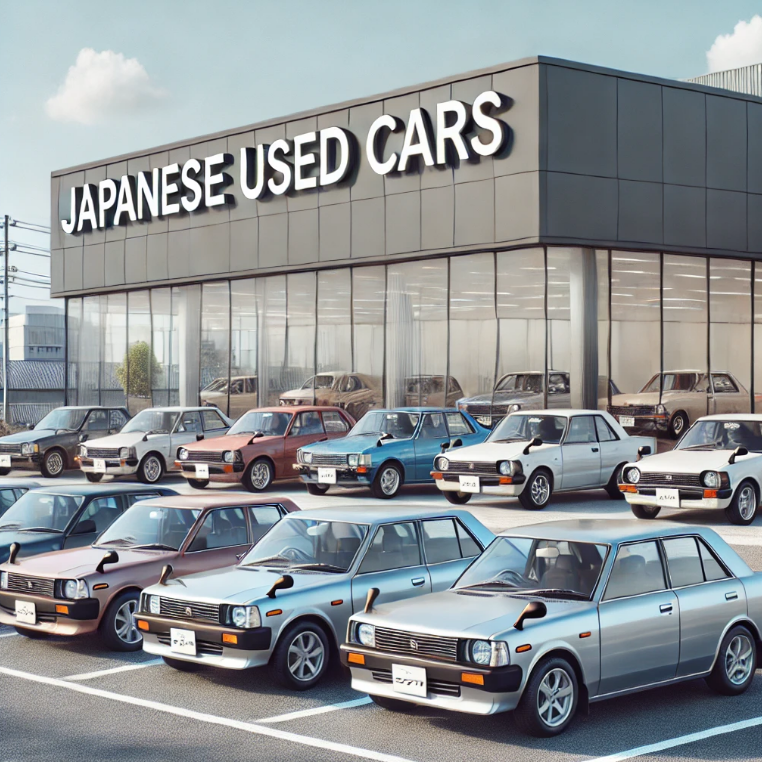Discover why Japanese used cars remain a top choice for buyers worldwide. Explore the benefits of quality, reliability, affordability, variety, and resale value in this in-depth guide.

1. Quality and Durability: The Hallmark of Japanese Engineering
Japanese automakers have long been recognized for their commitment to producing vehicles of superior quality and durability. Brands like Toyota, Honda, and Nissan have built reputations on the reliability of their cars, trucks, and SUVs.
The Rise of Japanese Automakers: In the mid-20th century, Japanese brands entered the global market with a focus on creating affordable, fuel-efficient vehicles. Over time, they established a reputation for precision engineering, resulting in cars that last longer and require fewer repairs compared to competitors.
Manufacturing Excellence: Japan's strict quality standards, coupled with their lean production methods, ensure that their cars maintain high build quality. This focus on detail leads to cars that are not only reliable but also have a long lifespan.
Additionally, the materials and components used in Japanese cars, including top-quality engines, transmissions, and suspension systems, are designed to handle extensive use with minimal wear and tear. This is why Japanese cars are known for staying on the road for decades when properly maintained.
2. Exceptional Reliability: A Legacy of Trust and Performance
One of the primary reasons buyers choose Japanese used cars is the exceptional reliability they offer. Japanese automakers have engineered their cars to run smoothly for years, even with high mileage. From family sedans to performance sports cars, the longevity and dependable performance of Japanese cars have made them a favorite worldwide.
Reliability Indexes: Various automotive research studies, such as JD Power's Vehicle Dependability Study, consistently rank Japanese cars at the top for reliability.
Cars like the Toyota Corolla, Honda Civic, and Nissan Skyline are known for their ability to continue running with minimal issues, even after clocking up to 200,000 kilometers and beyond.
3. Affordability: High Value at Competitive Prices
Japanese used cars are widely regarded as one of the best value purchases on the global market. With Japan's strict vehicle inspection system, many car owners sell their cars after just a few years of use. This leads to a surplus of well-maintained used cars that are available at highly competitive prices.
Japanese Auctions: A significant portion of used cars in Japan are sold through auctions, where buyers can get great deals on low-mileage, well-maintained vehicles. Auction grading systems provide transparency regarding the condition of the car, ensuring buyers know exactly what they are purchasing.
When comparing prices, Japanese used cars often offer more features and better build quality than similarly priced vehicles from other regions, making them an attractive option for budget-conscious buyers.
4. Wide Variety of Models: Choices for Every Need and Preference
Japan's automotive industry offers a wide range of vehicle types, from compact city cars to luxury SUVs. Whether you're looking for an affordable kei car for city driving, a spacious family SUV, or even a high-performance sports car, Japan has it all.
Japanese Domestic Market (JDM) cars are often designed specifically for the Japanese market, meaning there are unique models that are highly sought after by enthusiasts around the world. This includes iconic cars like the Nissan Skyline GT-R, Toyota Supra, and Mazda RX-7.
For environmentally conscious buyers, Japan is a leader in hybrid and electric vehicle technology, with models like the Toyota Prius and Nissan Leaf being globally recognized for their fuel efficiency and low emissions.
5. High Resale Value: A Wise Long-Term Investment
One of the significant advantages of Japanese used cars is their ability to retain value over time. Due to their exceptional reliability and quality, Japanese cars are highly sought after in the used car market, which means they hold their resale value better than many other vehicles.
Whether you're looking at SUVs like the Toyota Land Cruiser, or family sedans like the Honda Accord, you can expect these cars to command a good price even after several years of use.
How to Maximize Resale Value: Keeping up with regular maintenance, ensuring all documentation is in order, and performing necessary repairs can help maintain your car's value and make it easier to sell at a competitive price.
Additional Considerations When Buying a Japanese Used Car
Before purchasing a Japanese used car, it’s essential to understand the auction grading system, inspect the car's history, and ensure you're dealing with a reputable exporter. Choosing the right importer is also crucial, as they can help you navigate the complexities of customs, shipping, and local regulations.
For buyers in regions like Africa, Southeast Asia, and the Middle East, Japanese cars are particularly popular due to their durability in varying climates and road conditions. However, research on specific models that perform best in your area is recommended.
